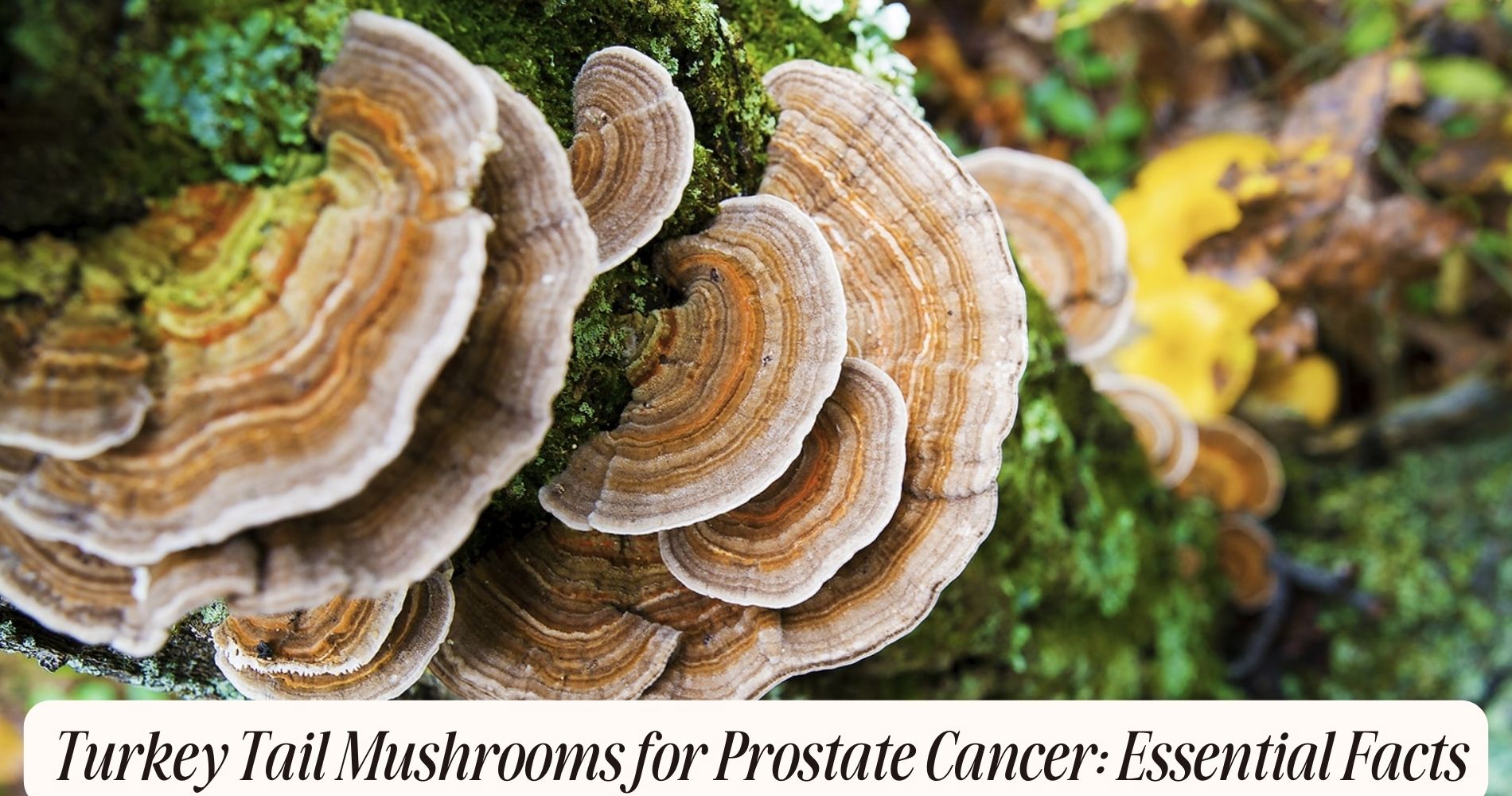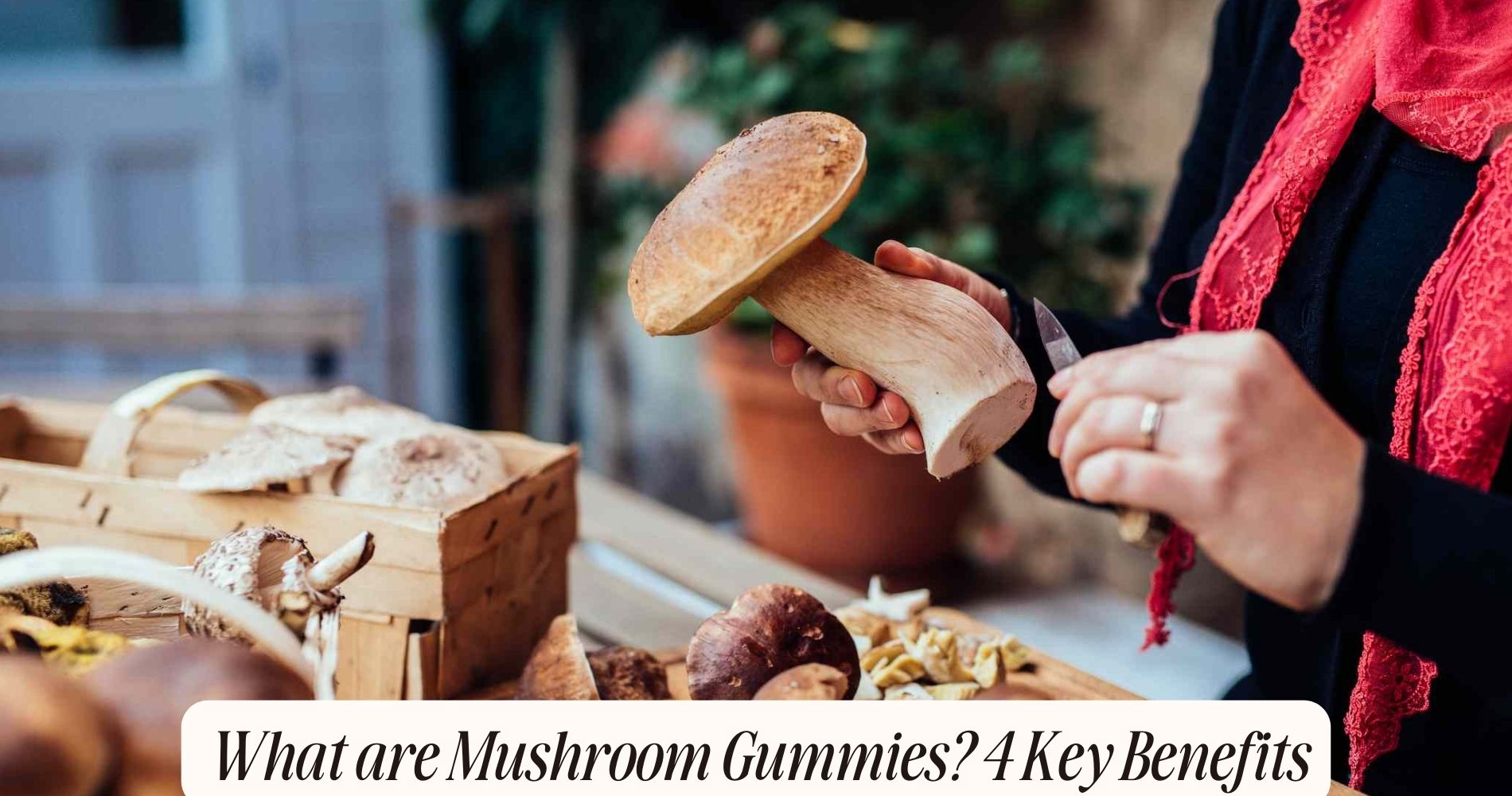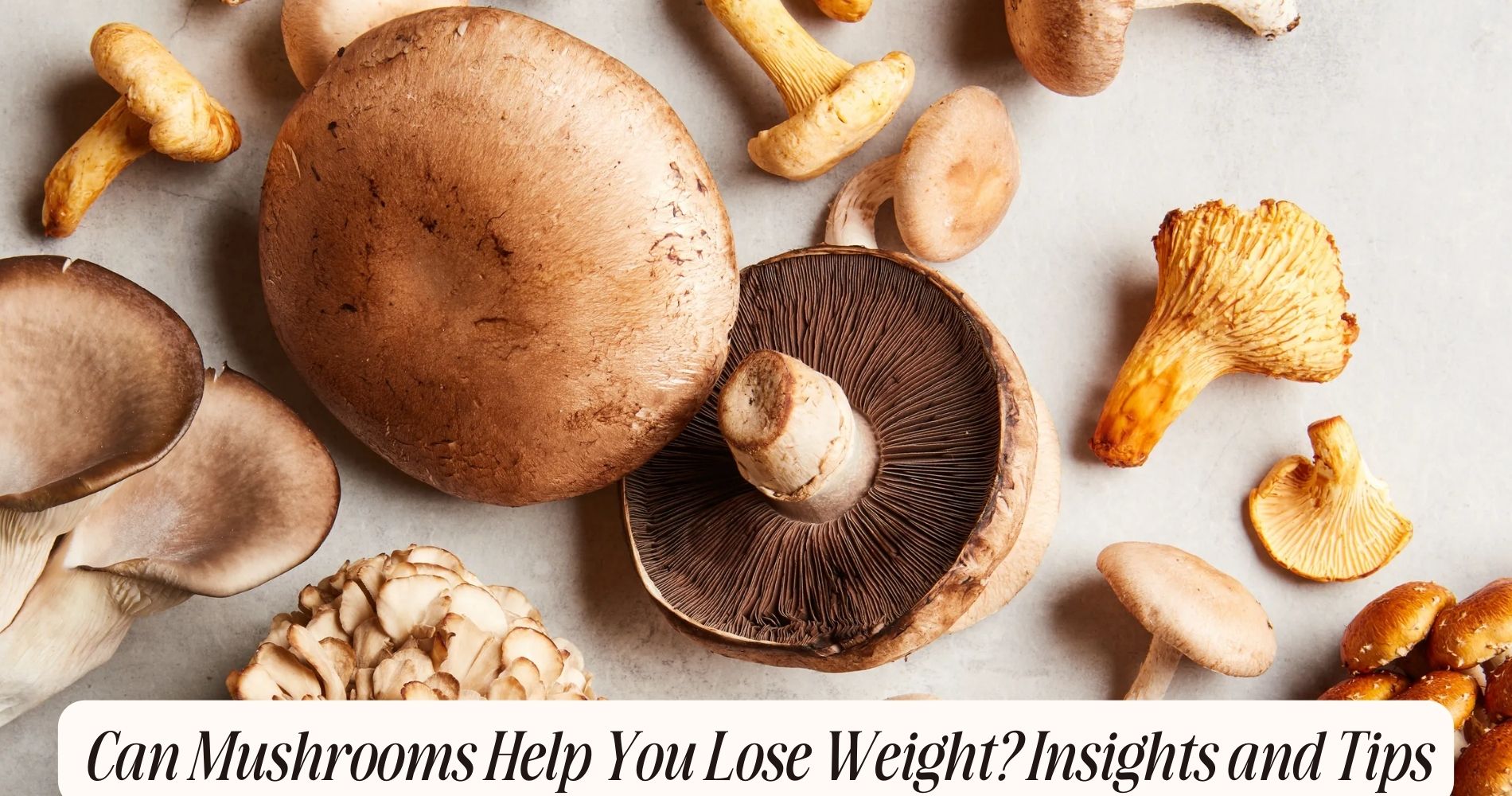
Turkey Tail Mushrooms for Prostate Cancer: Essential Facts
Understanding Turkey Tail Mushrooms
Turkey tail mushrooms, scientifically known as Trametes versicolor, are a type of polypore fungus renowned for their potent immunomodulatory properties. Historically, these mushrooms have been utilized in traditional medicine across various cultures, particularly in Asia. Ancient Chinese and Japanese practitioners prescribed them for their supposed ability to bolster the immune system and enhance vitality. Additionally, historical uses included treatments for respiratory conditions and infections, underscoring their broad medicinal applications.

To accurately identify turkey tail mushrooms, you'll need to look for several distinctive features. These fungi exhibit multicolored, concentric zones on their cap, often resembling a wild turkey's tail—hence the name. The cap is typically thin, flexible, and fan-shaped, ranging from 1 to 10 cm in diameter. The surface texture is velvety, and colors can vary from shades of brown and tan to striking blues and reds. Underneath the cap, you'll find tiny pores rather than gills, which is characteristic of polypore fungi.
Recognizing these identification tips is essential for ensuring you're harvesting the correct species, as look-alikes can lead to misidentification and potential health risks. Accurate identification is the first step in leveraging the historical uses of turkey tail mushrooms for modern therapeutic applications.
Key Compounds in Turkey Tail
Central to the therapeutic potential of Trametes versicolor are its bioactive compounds, particularly polysaccharopeptides like PSK (Krestin) and PSP, which have demonstrated significant immunomodulatory and anticancer properties. These compounds are known to enhance the body's immune response, making them valuable in the context of oncology.
Polysaccharide Krestin (PSK) is renowned for its ability to boost the activity of immune cells, such as natural killer cells and T-lymphocytes, which play an essential role in targeting and destroying cancer cells.
In addition to PSK, the mushroom contains a variety of beta glucans, which contribute to its therapeutic profile. Beta glucans are complex polysaccharides that have been shown to offer significant benefits, including the enhancement of macrophage and dendritic cell function. This, in turn, amplifies the body's ability to recognize and attack malignant cells.
The combination of PSK and beta glucans in Turkey Tail mushrooms creates a multifaceted defense mechanism against cancerous growths.
Mechanisms of Action
Understanding the mechanisms of action behind these compounds reveals how they effectively enhance immune surveillance and exert direct antitumor effects. Turkey tail mushrooms contain bioactive compounds like polysaccharopeptides (PSP) and polysaccharide-K (PSK), which play a pivotal role in immune modulation. These compounds stimulate the activity of natural killer (NK) cells, macrophages, and dendritic cells, thereby boosting the body's ability to identify and destroy cancer cells.
Moreover, turkey tail mushrooms exhibit significant antioxidant properties. They contain phenolic compounds and flavonoids that neutralize free radicals, reducing oxidative stress and preventing DNA damage. By mitigating oxidative stress, these mushrooms help protect cellular integrity and inhibit the progression of cancerous cells.

In addition to immune modulation and antioxidant properties, turkey tail mushrooms also promote apoptosis, the programmed cell death of malignant cells, and inhibit angiogenesis, the formation of new blood vessels that tumors need for growth. These multifaceted actions make turkey tail mushrooms a potent adjunct in cancer therapy.
Understanding these mechanisms underscores the potential of turkey tail mushrooms in providing a complementary approach to traditional cancer treatments, specifically for prostate cancer.
Research on Prostate Cancer
Recent studies have highlighted the promising effects of turkey tail mushrooms in the management of prostate cancer, offering a thorough assessment of their therapeutic potential. Researchers have conducted several clinical trials to evaluate the efficacy of these mushrooms in enhancing patient outcomes.
One notable study demonstrated that turkey tail mushrooms could markedly boost immune function, which is critical in combating cancerous cells. This is attributed to the presence of polysaccharopeptides, particularly PSP and PSK, which activate immune responses.
In another clinical trial, patients receiving turkey tail mushroom extracts alongside conventional treatments such as radiation and chemotherapy exhibited improved survival rates and reduced tumor growth. These trials underscore the mushrooms' ability to synergize with existing therapies, potentially enhancing their overall effectiveness.
The safety profile of turkey tail mushrooms has also been rigorously evaluated, with minimal adverse effects reported, supporting their use as a complementary therapy. However, it's imperative to note that while preliminary results are encouraging, larger-scale studies are necessary to confirm these findings definitively.
As research progresses, the integration of turkey tail mushrooms into prostate cancer treatment regimens could become increasingly viable, pending further validation in clinical settings.
Integrating Into Treatment Plans
Integrating turkey tail mushrooms into prostate cancer treatment plans necessitates a strategic approach that leverages their immunomodulatory properties to complement conventional therapies. To guarantee efficacy and safety, it's crucial to adhere to precise dosage guidelines. The typical dosage ranges from 1 to 3 grams of powdered extract daily, divided into two or three doses. However, you should consult a healthcare provider to tailor the dosage to individual patient needs and treatment stages.

When incorporating turkey tail mushrooms, be vigilant about potential interactions with existing medications. For instance, this supplement may enhance the effects of immunotherapy drugs, potentially leading to heightened immune responses. Conversely, it could also interact adversely with immunosuppressive medications, diminishing their effectiveness. Therefore, a thorough patient history and ongoing monitoring are imperative.
Additionally, integrating turkey tail mushrooms should involve a multidisciplinary team, including oncologists, nutritionists, and pharmacists, to ensure a holistic approach. Regular bloodwork and immune function tests can help track the patient's response and adjust dosages as necessary.
Discover Well Gummies: 10-IN-1 Mushroom Gummies
Enhance your wellness routine with Well Gummies' 10-IN-1 Mushroom Gummies, which conveniently include the benefits of Turkey Tail mushrooms. These vegan gummies combine 10 functional mushrooms to fuel your brain and energize your body naturally. Experience calmer energy, sharper focus, and robust immune support for a balanced body and clear mind.
Enjoy the delightful taste of fresh wild berries, reminiscent of your favorite candy, with no jitters or crash, ensuring you shine all day. Embrace the natural power of mushrooms with Well Gummies' easy-to-use and delicious 10-IN-1 Mushroom Gummies.
Frequently Asked Questions
Are There Any Side Effects of Consuming Turkey Tail Mushrooms?
Yes, you might experience digestive issues or allergic reactions when consuming turkey tail mushrooms. Clinical evidence suggests potential side effects like nausea, bloating, or skin rashes. Always consult a healthcare professional before starting any new supplement.
Can Turkey Tail Mushrooms Be Taken Alongside Other Medications?
When considering turkey tail mushrooms alongside other medications, you should consult your healthcare provider. Dosage guidelines and potential medication interactions require careful evaluation to guarantee safety and avoid adverse effects. Always follow professional medical advice.
How Should Turkey Tail Mushrooms Be Stored to Maintain Their Potency?
Store turkey tail mushrooms in airtight storage containers to maintain potency. Minimize light exposure by keeping containers in a dark, cool, and dry place. This method preserves the mushrooms' active compounds and maximizes their efficacy.
Are There Any Dietary Restrictions When Using Turkey Tail Mushrooms?
When using turkey tail mushrooms, there aren't strict dietary restrictions. However, cooking methods and serving sizes should be monitored. Evidence suggests that moderate servings in various preparations maximize efficacy without adverse effects. Consult your healthcare provider.
Where Can I Buy High-Quality Turkey Tail Mushrooms?
You can purchase high-quality turkey tail mushrooms from reputable online retailers and well-regarded local markets. Make sure the products are certified organic and third-party tested to verify their potency and purity for best therapeutic benefits.
Conclusion
Incorporating turkey tail mushrooms into prostate cancer treatment could offer promising benefits due to their bioactive compounds. Their mechanisms, including immune modulation and anti-tumor properties, are backed by emerging clinical research.
You should consider discussing this integrative approach with your healthcare provider to guarantee it complements your existing treatment plan effectively.
Always rely on evidence-based practices and professional guidance when exploring adjunct therapies for prostate cancer.




